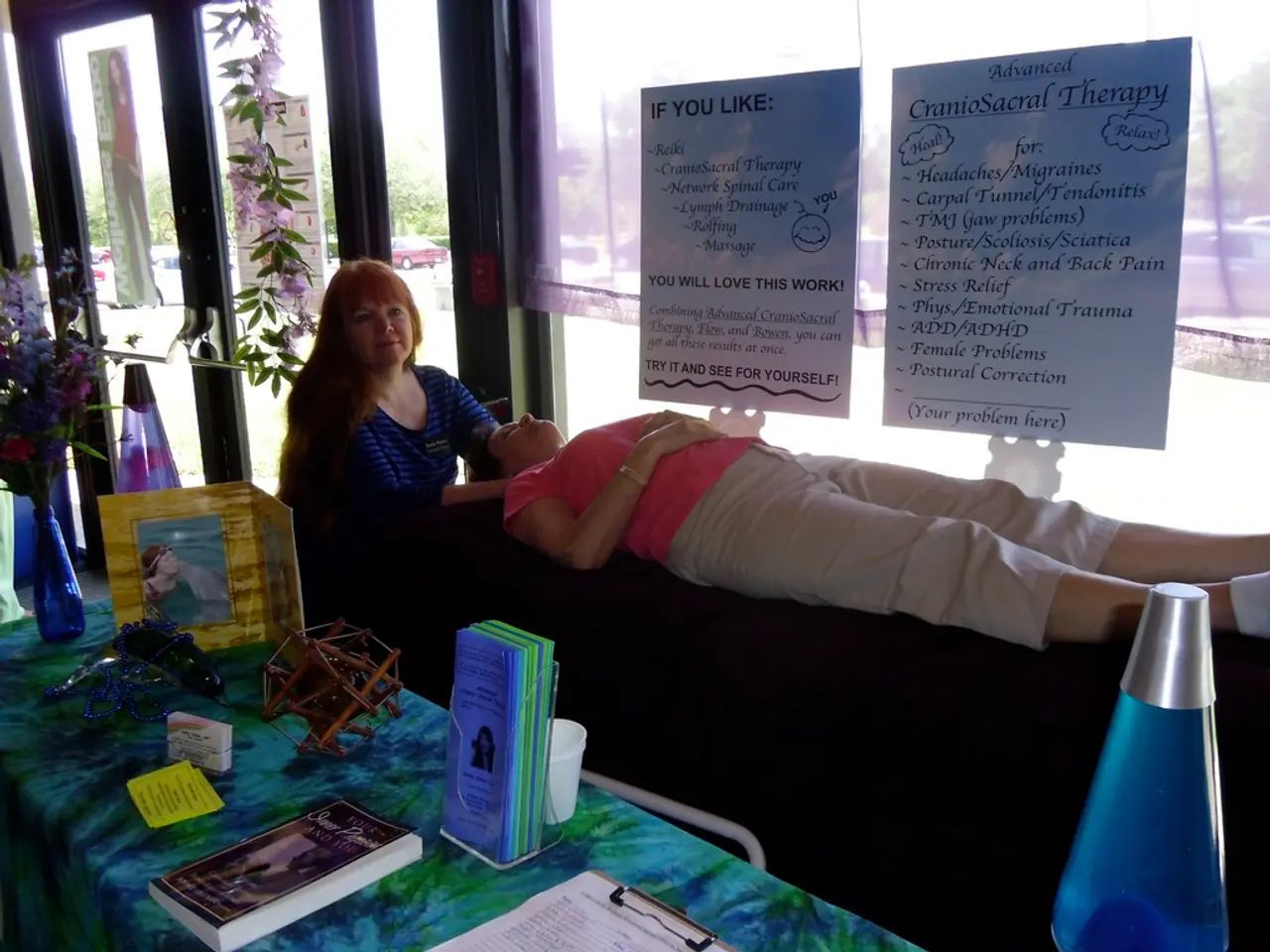Connections Revealed Between Mental Stress and Various Factors
In recent research, several studies have shed light on factors that impact psychological well-being and strategies to cope with psychological distress.
A study published in the International Journal of Environmental Health Research has found that spending time in an urban park, even for a short duration, can contribute to an improvement in subjective well-being, independent of physical activity. This suggests that simply enjoying the greenery of a park could have positive effects on one's mental state.
Meanwhile, a meta-analysis by researchers from the University of California, Riverside, has revealed a negative association between higher levels of goal conflict and psychological well-being. Goal conflict, it seems, can have a detrimental effect on our mental health.
In Germany, workplace-related factors, such as excessive job demands, lack of control over work processes, poor social support, and experiences of bullying, are among the most common causes of psychological stress. Social stressors like isolation, negative work climate, high performance pressure, and work-life imbalance also play a significant role. Broader causes include depression, anxiety disorders, social inequality, domestic violence, and the impact of the COVID-19 pandemic.
The University of Exeter and Edith Cowan University have conducted a study linking personal goal conflict to increased feelings of anxiety and depression. This finding underscores the importance of managing and resolving conflicts in our personal lives for better mental health.
So, what can be done to effectively cope with psychological distress? Research indicates that identifying the causes of distress and taking steps to alleviate or overcome them is key. This could involve seeking psychological counseling, a common and effective method for addressing mental health issues.
Interestingly, a study in Health Place found beneficial effects of greenness (green space) on serious psychological distress among adults and teens in California. This suggests that access to green spaces might be a simple yet effective way to improve mental health.
The study also found that inter-goal conflict and ambivalence were associated with depressive and anxious symptoms independently. This means that resolving internal conflicts could play a significant role in improving one's mental health.
In addition, research has shown that receiving hugs on days with interpersonal conflict can help attenuate the negative effects of the conflict on the same day and subsequent days. This underscores the importance of physical affection in times of stress.
Experts recommend identifying what you need and focusing on what you want as healthy ways to deal with psychological distress. This could involve practicing good self-care, engaging in grounding techniques, and developing a nurturing self-voice.
In conclusion, a variety of factors can impact psychological well-being, from time spent in urban parks to personal goal conflicts. However, by understanding these factors and taking steps to manage them, it is possible to improve mental health and cope with psychological distress effectively.
Read also:
- Peptide YY (PYY): Exploring its Role in Appetite Suppression, Intestinal Health, and Cognitive Links
- Toddler Health: Rotavirus Signs, Origins, and Potential Complications
- Digestive issues and heart discomfort: Root causes and associated health conditions
- House Infernos: Deadly Hazards Surpassing the Flames








